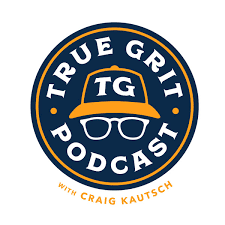Leaders who get great results over a sustainable time period have a secret sauce: they are good listeners. They know how to “get into the head” of their people.
It used to be that listening was perceived as something reserved for human resources, shrinks and spiritual directors. But tons of research shows that CEO’s, executives and owners must have competency here as well. Your employees can be well trained, well resourced and have clarity of their roles. But if they don’t feel you understand them, performance simply drops over time.
Your people need for you take initiative to enter their point of view. That is the essence of good listening, and it is a form of empathy. It’s just a basic human need, like air or water. It is the art of understanding how they experience reality, not how you experience reality. You have to get out of your opinion, and into theirs, temporarily. This is hard work for a leader, because you also have to be the visionary who sees a future reality that others don’t. But you have to wear both hats. These tips will help you be a great listening leader:
• Take initiative to ask them how things are going. Don’t wait for them to come up and tell you what’s going on. This “walk-around management is a great use of your time.
• Ask open ended questions, not yes-no questions. For example, “So how’s it going?” is better than, “Things are good, right?” You’ll get more needed data and more loyalty that way.
• Ask a few times. Most of the time, when they are asked “How’s it going”, that the answer should be, “Fine.” And that’s what they will say. But after the “Fine,” just ask, “So how are things with the Green account?” or “How are things going in the role we have for you?” That conveys you really want to hear their experience, and they are much more likely to tell you what’s really going on.
• When you get the info, find how they feel before providing a solution. Instead of, “OK, the Green account is having problems, try this”, say, “That must be frustrating” or “I’d be overwhelmed myself” or “That would bug me too.” You have just entered a place inside their heads where few people go, and you have now become a significant person for them.
• Don’t worry that listening means agreement. Many leaders hesitate from listening, because they are concerned that the person will think Great, you agree with me. If that is true, you need to deal with that person’s entitlement attitude. But most of the time, people don’t assume that. You can say “That’s a tough situation” and later in the same conversation say, “I think you dropped the ball” and both are true.
• Don’t give advice until you know they need it. Leaders tend to “fragilize” their people, thinking that their employees just can’t think for themselves and solve problems. Sometimes they do need your advice. But my experience is that over half the time, if you listen well and support, they are smart enough to solve their own challenges, and your “being there” was all they needed. If that isn’t enough, they will tell you.
Be a listener. Be a challenger too, but that’s for a future blog. Best to your leadership!





